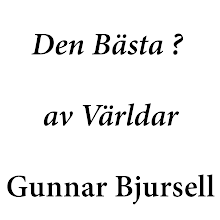Tonight we saw the last part in the Millenium trilogy, in Swedish called Luftslottet som sprängdes, in English; The Girl Who Kicked the Hornet's Nest and in French; La Reine dans le palais des courants d'air.
Dir. Daniel Alfredsson.
Aurore who has read all three books, regarded this third one being the best or least bad.
I would like to agree to that. This third part was better than the two first, not least because it was told in a more 'professional', fluid way, this time achieving to create a tense atmosphere.
I don't say this because I participated as a guest at the party at the Millenium editorial office, even if that added a certain 'extra' to the film, no doubt!
I also did some dubbing in the other two films, being a police man, a truck driver at a café and more...
Aurore who has read all three books, regarded this third one being the best or least bad.
I would like to agree to that. This third part was better than the two first, not least because it was told in a more 'professional', fluid way, this time achieving to create a tense atmosphere.
I don't say this because I participated as a guest at the party at the Millenium editorial office, even if that added a certain 'extra' to the film, no doubt!
I also did some dubbing in the other two films, being a police man, a truck driver at a café and more...




